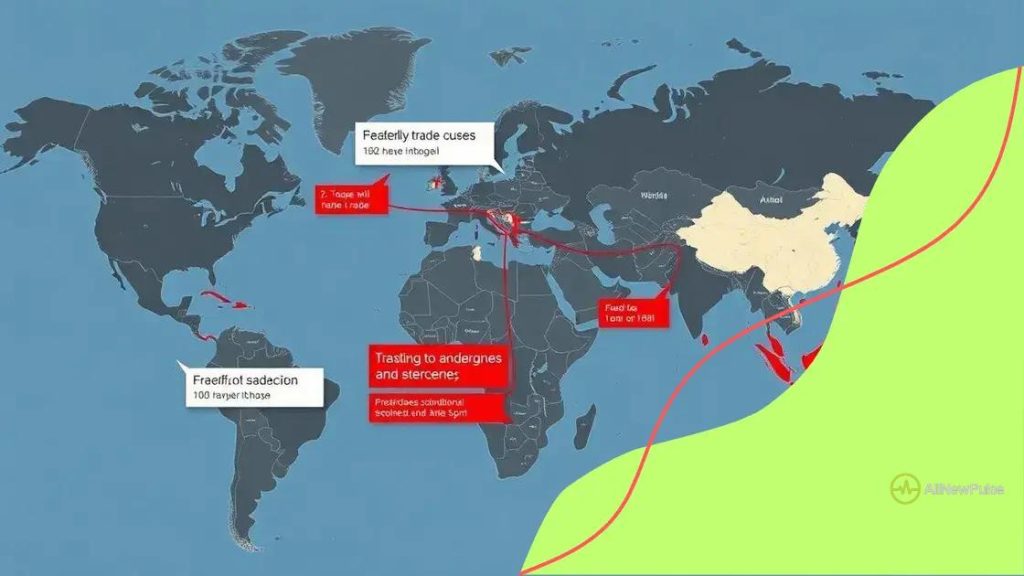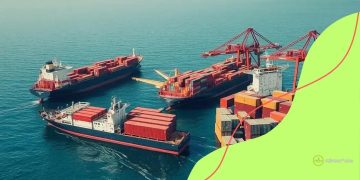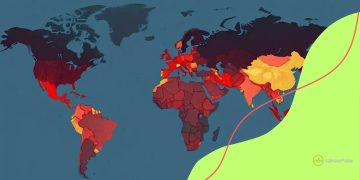The impact of economic sanctions on global trade is profound

The impact of economic sanctions on global trade involves disrupting traditional trade relationships, increasing costs, and forcing nations to seek alternative partnerships, which can reshape international economic dynamics.
The impact of economic sanctions on global trade is a subject that affects many nations and businesses. Have you ever wondered how these measures really change trade dynamics? Let’s dive in.
Understanding economic sanctions
Understanding economic sanctions is key to grasping their influence on global trade. Economic sanctions are restrictive measures imposed by countries to achieve foreign policy goals, often affecting international trade.
These measures can take various forms, such as trade embargoes, asset freezes, and financial restrictions. Each type affects countries and businesses differently, modifying how they engage in trade worldwide.
The types of economic sanctions
Understanding the different categories of sanctions is crucial. Some of the most common types include:
- Trade embargoes: These prohibit trade with specific countries.
- Asset freezes: This prevents access to resources owned by targeted individuals or governments.
- Financial restrictions: Limitations on banking and financial transactions with certain countries.
These sanctions are implemented for various reasons, such as human rights abuses, terrorism, or aggression against other nations. It’s important to recognize that while sanctions aim to promote change, they can also cause unintended repercussions.
Consequences of sanctions
The consequences of sanctions can be profound, impacting economies and populations globally. For instance, countries facing sanctions often experience economic decline, which may lead to humanitarian crises.
Moreover, businesses within sanctioned countries may struggle to secure essential goods, negatively affecting their operations. This, in turn, can create a ripple effect on global supply chains. Countries often have to seek alternative markets or partners, which can alter long-standing trade relationships.
Understanding economic sanctions helps to clarify their complex role in global trade. By recognizing their impact, businesses and individuals can navigate international markets more effectively, adapting to changes as they occur.
Historical examples of sanctions
Exploring historical examples of sanctions offers valuable insights into the effects of such measures on nations and global trade. Sanctions have been used throughout history for various political and economic goals, demonstrating their potential to reshape international relations.
One notable instance is the U.N. sanctions against Iraq in the 1990s. After Iraq invaded Kuwait, these sanctions aimed to pressure the regime into withdrawal. While they succeeded in their immediate goal, the sanctions also led to significant humanitarian issues, affecting millions of Iraqi civilians and ultimately raising ethical debates on the impact of sanctions.
Another significant example: South Africa
The international community imposed sanctions on South Africa during the apartheid era. These measures included trade restrictions and financial penalties. They played a crucial role in pressuring the government to end racial segregation and paved the way for democratic reforms.
Similarly, the sanctions against North Korea illustrate another complex scenario. These sanctions aim to curb the nation’s nuclear program but have also led to severe economic consequences for its citizens. The balance between political objectives and humanitarian considerations is frequently put to the test in these cases.
Lessons learned from historical sanctions
Understanding these historical examples highlights the need for a careful approach when implementing sanctions. Countries often have to weigh their foreign policy goals against the potential for unintended humanitarian crises.
Overall, examining these instances deepens our comprehension of how economic sanctions shape global dynamics. They serve as clear reminders of the significant impact such measures can have on populations, economies, and international relations.
Effects of sanctions on trade relationships

The effects of sanctions on trade relationships can be substantial, influencing how nations interact economically. Sanctions often disrupt traditional trade patterns, leading to a reconfiguration of alliances and partnerships.
For instance, when a country faces sanctions, it may struggle to access goods and services that were previously available. This creates a necessity to find new trading partners, impacting both the sanctioned nation and its previous allies.
Shift in trade patterns
This shift in trade patterns can lead to a few different outcomes. Countries may seek out alternative markets, which can foster new economic alliances. Additionally, businesses within sanctioned countries might face increased costs as they navigate new supply chains. Some of the common effects include:
- Increased prices: The cost of imports may rise due to limited sources.
- New partnerships: Sanctioned countries often look for new trading partners.
- Market isolation: Long-term sanctions can isolate economies, limiting growth.
Additionally, the impact of sanctions can ripple through global markets, affecting unrelated countries. Other nations might experience changes in their export strategies to fill gaps left by sanctioned states. This can lead to competitive advantages—or disadvantages—depending on the economic landscape.
Long-term relationship impacts
The long-term impacts on trade relationships can be profound. Countries that engage in sanctioning often find that their previous trade partners shift allegiance, leading to a permanent realignment of global trade. As economies adjust, the trust that once existed in trade agreements can diminish, making future cooperation challenging.
Understanding the effects of sanctions on trade relationships highlights the delicate balance between political goals and economic realities. Nations must consider how such measures will affect their long-term economic partnerships.
Sanctions and global supply chains
Sanctions and global supply chains are closely linked, as these economic measures can significantly disrupt international trade networks. When sanctions are imposed, they often create challenges that ripple through various suppliers and manufacturers worldwide.
For instance, a country facing sanctions may find it difficult to obtain raw materials or finished goods. This situation can lead to delays and increased costs, affecting businesses far beyond the borders of the sanctioned nation.
Disruption of supply networks
This disruption often forces companies to seek alternative suppliers, which may not always be readily available. The impact on supply chains can include:
- Increased lead times: Companies may face longer waiting periods for essential items.
- Higher costs: Finding new suppliers can lead to increased production costs.
- Supply shortages: Some products may become scarce, leading to market imbalances.
As businesses scramble to adapt, they might also experience a loss of customer trust due to delays in delivering goods. This change can further strain relationships between businesses and consumers, highlighting the broader implications of sanctions.
Long-term adjustments in supply chains
In the long run, sanctions can lead to significant changes in how global supply chains operate. Businesses may begin to diversify their suppliers to mitigate risks associated with reliance on any single country. This strategy not only enhances resilience but also helps businesses navigate future economic uncertainties.
Ultimately, understanding how sanctions affect global supply chains is crucial for companies that want to remain competitive. They must be proactive in adjusting their operational strategies to mitigate disruptions caused by these economic measures.
Future outlook on economic sanctions
Considering the future outlook on economic sanctions is essential as global dynamics continue to evolve. Sanctions have become a common tool for governments to exert pressure without using military force. Understanding their potential future impacts can help nations and businesses navigate an uncertain landscape.
One major trend is the use of targeted sanctions, which focus on specific individuals or entities instead of entire nations. This approach aims to minimize humanitarian impacts while still achieving foreign policy objectives. It raises questions about the effectiveness of wider sanctions in an increasingly interconnected world.
Technology and sanctions monitoring
Advancements in technology will also play a key role in the future of sanctions. Improved monitoring systems and big data analytics can enhance the ability to enforce sanctions effectively. Companies may increasingly rely on technology to comply with complex regulations and avoid penalties.
Moreover, as countries adapt, we may see a shift towards alternative trading networks. These networks can help nations evade traditional sanctions, leading to a more fragmented global trading system. This potential change presents both opportunities and challenges for international businesses.
The geopolitical landscape
As the geopolitical landscape changes, the motives behind sanctions are likely to adapt. Issues such as climate change, cybersecurity, and human rights may become central themes driving future sanctions. Countries may impose sanctions not just for military aggression, but also for environmental or ethical reasons.
Ultimately, the future outlook on economic sanctions suggests a need for flexibility and adaptation. Understanding these trends and their implications will be crucial for nations and businesses aiming to thrive in a changing world.
In conclusion, understanding the complex landscape of economic sanctions is crucial for both nations and businesses. Sanctions can significantly affect global trade dynamics, disrupting established relationships and creating new challenges. As we look to the future, it’s essential to consider how sanctions will evolve with technology and global trends. The interplay between humanitarian concerns and political objectives will remain a defining aspect of sanctions, making awareness and adaptability key for navigating these turbulent waters.
FAQ – Frequently Asked Questions about Economic Sanctions
What are economic sanctions?
Economic sanctions are measures imposed by countries to influence foreign policy, often restricting trade, financial transactions, or technology exchange.
How do sanctions affect global trade?
Sanctions disrupt established trade relationships, force countries to seek alternative trading partners, and can lead to increased costs and supply shortages.
What are targeted sanctions?
Targeted sanctions focus on specific individuals, entities, or sectors rather than entire countries, to minimize humanitarian impacts while achieving political goals.
What is the future outlook for economic sanctions?
Future sanctions may involve more targeted approaches and advanced technology for enforcement, reflecting changes in global issues like cybersecurity and human rights.





